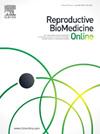Elective co-parenting with someone already known versus someone met online: implications for parent and child psychological functioning
IF 3.7
2区 医学
Q1 OBSTETRICS & GYNECOLOGY
引用次数: 0
Abstract
Research question
What are the psychological outcomes for parents and children in elective co-parenting families, and do these differ based on whether or not the co-parents met online?
Design
This cross-sectional study provides novel descriptive quantitative data on the wellbeing of parents and children within 23 elective co-parenting families, defined as two or more parents deciding to have and raise children together outside of a romantic partnership or conjugal couple relationship. Standardized questionnaires were administered to assess parent and child psychological adjustment. Bayesian independent t-tests were conducted to compare the parent and child outcomes in 13 families who met online via a connection website with 10 families who were co-parenting with someone known to them previously.
Results
Elective co-parent scores for depression, anxiety, parenting stress, resilience, perceived social support and couple relationship satisfaction were within the normal range. Children's average competencies, and behavioural and emotional problem scores were low risk when compared with population norms. Bayes factors suggest no support for the alternative hypothesis that there were differences in parent or child wellbeing between families with co-parents who met via connection sites compared with families with co-parents who already knew each other.
Conclusions
Parents and children in elective co-parenting families are functioning well regardless of how they were formed, but individuals may require tailored professional advice or support for this growing new route to parenthood. Future longitudinal work with larger samples is required to replicate these findings, and explore children's perspectives of their families, as well as the support needs of co-parents and their children throughout their parenting journey.
选择与熟人或网上认识的人共同养育子女:对父母和子女心理功能的影响。
研究问题:在选择性共同抚养家庭中,父母和孩子的心理结果是什么?这些结果是否因共同父母是否在网上认识而有所不同?设计:本横断面研究提供了23个选择性共同抚养家庭中父母和孩子幸福的新颖描述性定量数据,定义为两个或两个以上的父母决定在浪漫的伴侣关系或夫妻关系之外共同抚养孩子。采用标准化问卷评估家长和儿童的心理适应情况。研究人员进行了贝叶斯独立t检验,比较了13个通过联系网站在线认识的家庭和10个与他们以前认识的人共同抚养孩子的家庭的父母和孩子的结果。结果:选择性共同父母抑郁、焦虑、父母压力、心理弹性、感知社会支持和夫妻关系满意度得分均在正常范围内。与人口标准相比,儿童的平均能力、行为和情绪问题得分的风险较低。贝叶斯因素不支持另一种假设,即通过联系网站认识的共同父母的家庭与已经认识的共同父母的家庭相比,父母或儿童的幸福感存在差异。结论:在选择性共同抚养家庭中,父母和孩子无论他们是如何形成的,都能很好地运作,但个人可能需要量身定制的专业建议或支持,以适应这种日益增长的新方式。未来需要更大样本的纵向研究来复制这些发现,并探索儿童对其家庭的看法,以及共同父母和他们的孩子在养育过程中的支持需求。
本文章由计算机程序翻译,如有差异,请以英文原文为准。
求助全文
约1分钟内获得全文
求助全文
来源期刊

Reproductive biomedicine online
医学-妇产科学
CiteScore
7.20
自引率
7.50%
发文量
391
审稿时长
50 days
期刊介绍:
Reproductive BioMedicine Online covers the formation, growth and differentiation of the human embryo. It is intended to bring to public attention new research on biological and clinical research on human reproduction and the human embryo including relevant studies on animals. It is published by a group of scientists and clinicians working in these fields of study. Its audience comprises researchers, clinicians, practitioners, academics and patients.
Context:
The period of human embryonic growth covered is between the formation of the primordial germ cells in the fetus until mid-pregnancy. High quality research on lower animals is included if it helps to clarify the human situation. Studies progressing to birth and later are published if they have a direct bearing on events in the earlier stages of pregnancy.
 求助内容:
求助内容: 应助结果提醒方式:
应助结果提醒方式:


